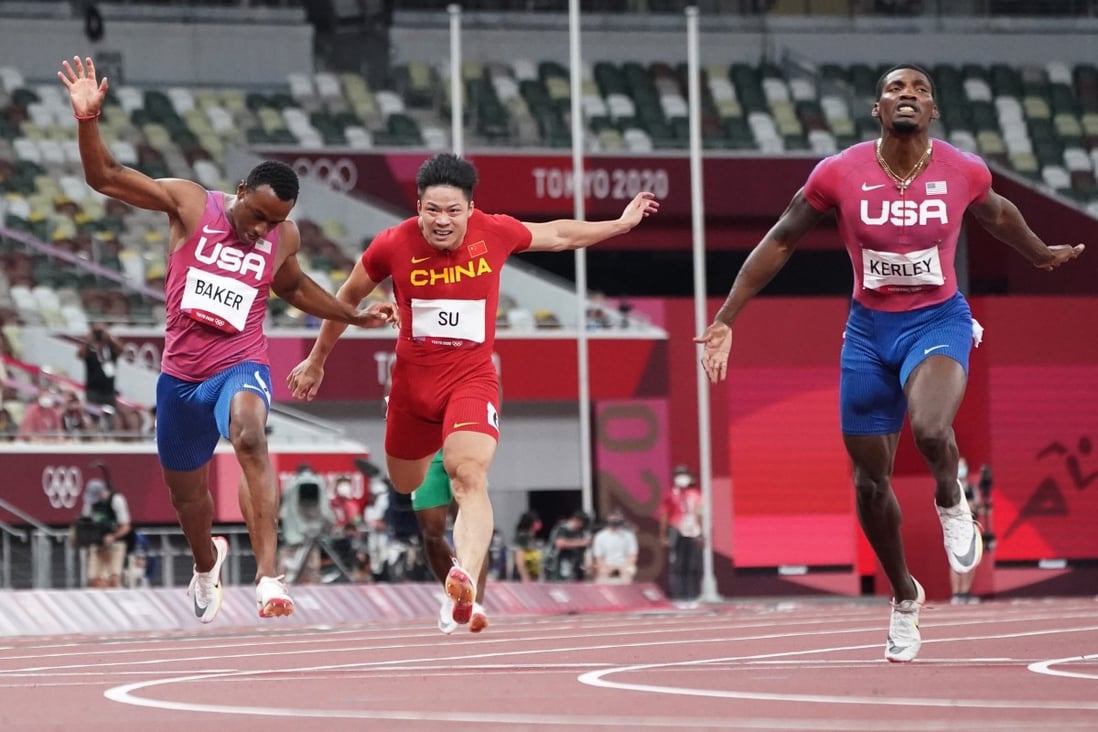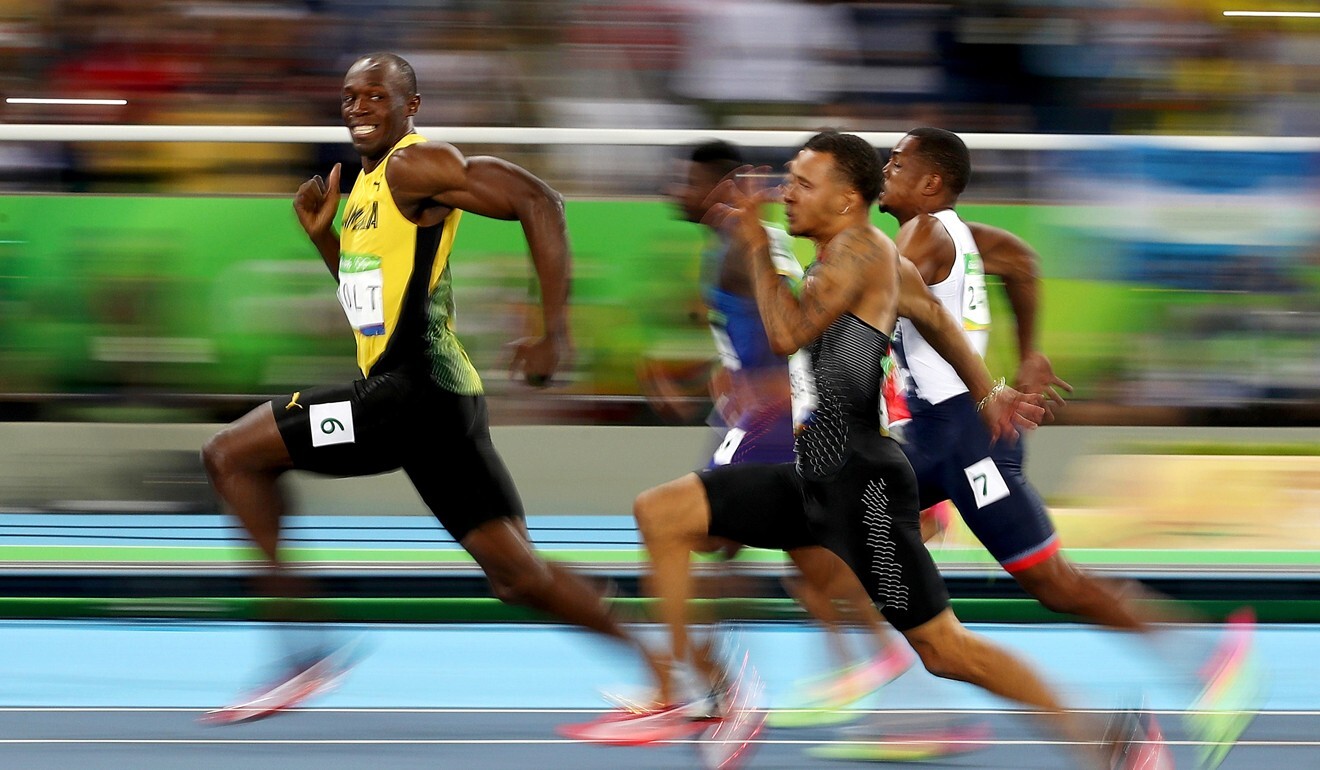
Su Bingtian on Sunday did what no Chinese runner had done before, as he sprinted to secure a place in the 100m men’s final at the Olympic Games in Tokyo.
The 32-year-old clocked a blistering 9.83 seconds to become the first Chinese and only Asian runner to compete in the final round of the event since 1932. Although still some distance behind the 9.58-second world record set by Jamaican legend Usain Bolt in 2009, Su’s feat was on a par with the 12 fastest human sprinters of all time.
Even though Su is going home without a medal, finishing sixth with 9.98 seconds in the final, he has no regrets.
China’s Su misses out on 100m medal, but still makes history
“I fulfilled a wish of Chinese sprinters,” he said.
That wish did not exist until recently, nonetheless. For decades, a prevailing theory in China’s sports science attributed black sprinters’ speed to their genes.
One study conducted by Tsinghua University researchers in 2014 found that technology and scientific training could help, but only to a limited extent.
Though the top sprinters’ nationalities varied, they came mostly from Jamaica, and DNA analysis had traced their roots to a common ancestor in western Africa, according to the team led by professor Li Qing and colleagues with Tsinghua’s sports department, in their widely quoted paper published in the China Sport Science journal.
The precise effect of inherited traits on a person’s physical performance remains very much a matter of debate. But the expression of some genes capable of boosting the production of specific protein fibres that help release muscle energy in a burst, or stimulate cell activities in the absence of oxygen, were indeed much higher in African athletes than their non-black competitors, a large number of studies have shown.
Chinese athletes were often seen to have a gene that blocked the formation of burst proteins.
Such genes led to differences including shorter limbs, wider hips, lower sex hormone levels and slower sugar metabolism, causing a range of disadvantages for Asian sprinters, according to the Tsinghua study.

But as Su progressed steadily in international competitions, the gene theory came under fire.
In a world championship event in Shanghai in 2018, Su won a surprise silver medal, and post-match analysis showed that he could have even won gold, had he not made a small technical mistake in the last 10 metres.
“Su Bingtian’s progress and success have broken the imagined ceiling,” said Yuan Tinggang and colleagues at the China Institute of Sports Science, in a paper published in the Journal of Beijing Sport University in 2019.
There have been other criticisms of gene theory. For instance, western African athletes did not post impressive performances, even though they should have enjoyed the most genetic advantage.
It seems Su, a Cantonese man from southern China who qualified as one of the fastest runners, disproves the gene theory.
Some experts have said that Su grew up in a hot environment with high humidity, which may have helped increase his endurance. Half of China’s top sprinters come from the southern provinces, including Guangdong and Guangxi, according to mainland media.
Can you pick athletes by their genes? China thinks so
Su might be exceptional, as few other Asian sprinters can match his performance, a Beijing-based sports scientist said, but China’s increasing gold medal tally in other sports such as swimming suggest that science and technology could fill the genetic gap “to a greater extent than expected”.
Su is not just an athlete. He is an associate professor at Jinan University in Guangzhou, with a PhD in sports science. He also holds a master’s degree in international business and trade.
In an academic paper published in 2019, Su said that traditional training in China’s track and field paid too much attention to increasing an athlete’s physical strength. The training was torturous, but had little effect. The continuous improvement of his performance came more from the brain than sweat.
Many professional sprinters relied on high speed cameras for motion capture to refine their techniques, for instance. But Su’s training ground was much more sophisticated, with dozens of hi-tech electronic devices on the scene.
These equipment not only recorded his external motions but invisible changes such as the tension in muscle fibres.
While others focused on building up more power and strength, Su spent more time improving the efficiency of using his body.
This has led to some critical changes in his running style in recent years, including higher stepping frequencies, longer distance between steps, and lower centre of gravity.
And he has learned how to play deaf at the starting line. “I use my back to sense the gun shot. It brings a reflex faster than using signals from the ears because it cuts a detour to the brain,” he said in an interview last year.
Su also said he owed much of his progress to the help of his American coach Randy Huntington, and he has received help from western therapists for quick recovery and staying in top condition at major competitions.







